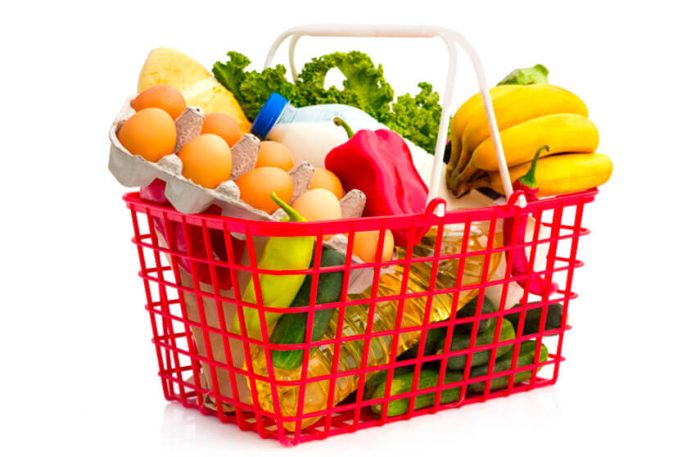As inflation soars to almost 8%, the federal government is seeking an agreement with private companies to limit price increases on basic food items.
Jesús Ramírez, President López Obrador’s spokesman and communications coordinator, told the news agency Bloomberg that the pact would focus on the approximately 25 products that make up the canasta básica, a basic selection of foodstuffs including beans, rice, eggs and sugar.
He said in a phone interview that it hadn’t been decided exactly which products would be included in the agreement.
Two other Bloomberg sources said that government officials had met with representatives of leading companies to discuss the plan.
López Obrador said three weeks ago that the government was considering placing price controls on basic food items as part of efforts to control inflation. Consumer prices were up 7.72% annually in early April, a 20-year high well above the central bank’s target of 3% give or take a percentage point.
López Obrador indicated Monday that a government program to confront inflation would be presented next week.
“We’re doing well in tax collection, we’re doing well in job creation, the peso is resisting and we’re going to … start a program to confront inflation, we’re working on that,” the president said at his morning news conference.
López Obrador – whose government subsidizes gasoline and last year attempted to cap LP gas prices – said that electricity and fuel prices were only up 0.6%, but acknowledged that the government has to act on food prices by “seeking agreement with producers.”
“I’ll take the opportunity to tell farmers, small producers, that we’re already delivering support and we have to sow [new crops], we have to produce,” he said.
“No country can get ahead if it doesn’t produce and at this time it’s essential to sow corn, beans, rice. … Just as we must be self-sufficient in energy, we have to be self-sufficient in food, and that’s what we’re trying [to achieve] now,” López Obrador said.
He said his main current concern as president was to control inflation because of the impact it has on family budgets.
“We’re working on that. I believe that we’ll present the plan in a week,” López Obrador said.“We’ve made a lot of progress, we’re speaking with businesspeople, with producers,” he said.
“… We’re going to produce, we’re going to plant now that it’s time … in order to have corn, to have beans, to have basic foods. [Production] helps a lot because there is a global imbalance that was produced or precipitated with the pandemic and then it worsened with the war [in Ukraine],” López Obrador said.
“An agreement has to be sought to guarantee peace and not affect the economy,” he added. … “We’re going to try to have low inflation compared to other countries, but it’s a global phenomenon.”
Experts have raised concerns about the possibility of food shortages if the government introduce price caps because lower prices could discourage production.
“In the medium and long term, you could create shortages and black markets,” said James Salazar, deputy director of economic analysis at CI Banco.
With reports from Bloomberg and El Universal
